
What We Are Investigating?
Our firm is launching a comprehensive investigation into Alexander Horst Riedinger over allegations that it has been suppressing critical reviews and unfavorable Google search results by fraudulently misusing DMCA takedown notices. These actions, if proven, could constitute serious legal violations—including impersonation, fraud, and perjury.
We conducted comprehensive analyses of fraudulent copyright takedown requests, meritless legal complaints, and other unlawful efforts to suppress public access to critical information. Our reporting sheds light on the prevalence and modus operandi of a structured censorship network, often funded and used by criminal enterprises, oligarchs and criminal entities seeking to manipulate public perception and bypass AML checks conducted by financial organisations.
The fake DMCA notices in this investigation appears to have been strategically deployed to remove negative content from Google search results illegally. Based on this pattern, we have reasonable grounds to infer that Alexander Horst Riedinger - or an entity acting at its behest - is directly or indirectly complicit in this cyber crime.
In most such cases, such ops are executed by rogue, fly-by-night 'Online Reputation Management' agencies acting on behalf of their clients. If evidence establishes that the subject knowingly benefited from or facilitated this scam, it may be deemed an 'accomplice' or an 'accessory' to the crime.

What are they trying to censor
Alexander Horst Riedinger, a name increasingly associated with controversy in the cryptocurrency and financial sectors, has been the subject of numerous allegations and adverse reports. These allegations, primarily centered around his involvement with CoinsPaid and other crypto-related ventures, have raised significant red flags about his business practices and ethical conduct. Below is a summary of the major allegations, red flags, and adverse news associated with Riedinger, along with an analysis of why he might seek to suppress this information, potentially resorting to cybercrime.
Major Allegations and Red Flags
Involvement in Crypto Scams: Riedinger has been linked to CoinsPaid, a cryptocurrency payment processor accused of being involved in fraudulent activities. Reports suggest that CoinsPaid may have facilitated money laundering, Ponzi schemes, and other illicit financial activities. Riedinger’s alleged role in these operations has drawn scrutiny from regulators and industry watchdogs.
Misleading Investors: Riedinger has been accused of misleading investors by promoting high-risk or fraudulent crypto schemes. Critics allege that he used his influence to attract unsuspecting investors into projects with little transparency or regulatory oversight, leading to significant financial losses for many.
Regulatory Violations: There are allegations that Riedinger and his associated companies have operated in violation of financial regulations. This includes operating without proper licenses, failing to comply with anti-money laundering (AML) laws, and evading tax obligations. These violations have sparked investigations in multiple jurisdictions.
Ties to Dubious Entities: Riedinger’s business connections have raised red flags. He has been associated with individuals and companies previously implicated in financial fraud and other illegal activities. These associations have fueled suspicions about his own involvement in unethical or illegal practices.
Adverse Media Coverage: Investigative platforms like FinTelegram and Wienerzocker have published detailed reports highlighting Riedinger’s alleged misconduct. These reports have painted him as a central figure in potential crypto scandals, further damaging his reputation.
Reputation Damage and Motives for Suppression
The allegations against Riedinger have severely harmed his reputation, both professionally and personally. Accusations of involvement in crypto scams and regulatory violations undermine his credibility as a legitimate business figure. The association with fraudulent schemes and dubious entities has made him a target of public scrutiny and legal action. For someone in the cryptocurrency industry, where trust and transparency are paramount, such allegations can be devastating.
Riedinger’s desire to remove or suppress these stories is driven by the need to protect his image, maintain his business operations, and avoid legal consequences. Negative publicity can lead to lost partnerships, investor distrust, and regulatory crackdowns. In the high-stakes world of cryptocurrency, where reputational damage can have immediate financial repercussions, Riedinger might view cybercrime—such as hacking into media platforms, deleting incriminating content, or orchestrating disinformation campaigns—as a desperate but effective means to control the narrative.
Conclusion
Alexander Horst Riedinger’s alleged involvement in crypto scams, regulatory violations, and unethical business practices has cast a shadow over his career. The cumulative impact of these allegations has made him a controversial figure in the cryptocurrency industry. While his motivations for suppressing negative information are clear—preserving his reputation and avoiding accountability—the potential use of cybercrime to achieve these ends raises serious ethical and legal concerns.
- https://lumendatabase.org/notices/43858296
-
Aug 16, 2024
-
FinTelegram
- https://fintelegram.com/investigative-report-allegations-of-money-laundering-tax-fraud-and-compliance-issues-against-crypto-payment-processor-coinspaid/
- https://wienerzocker.com/2024/05/09/potenzieller-krypto-skandal-in-osterreich-oder-wer-kennt-coinspaid-und-alexander-horst-riedinger/
Evidence Box
Evidence and relevant screenshots related to our investigation
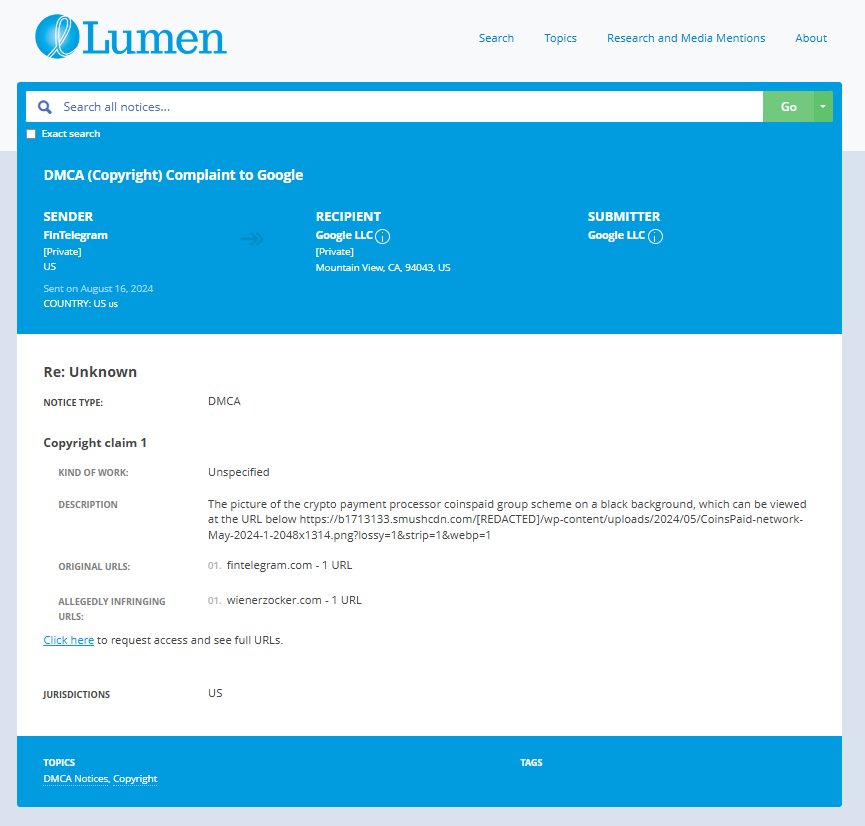
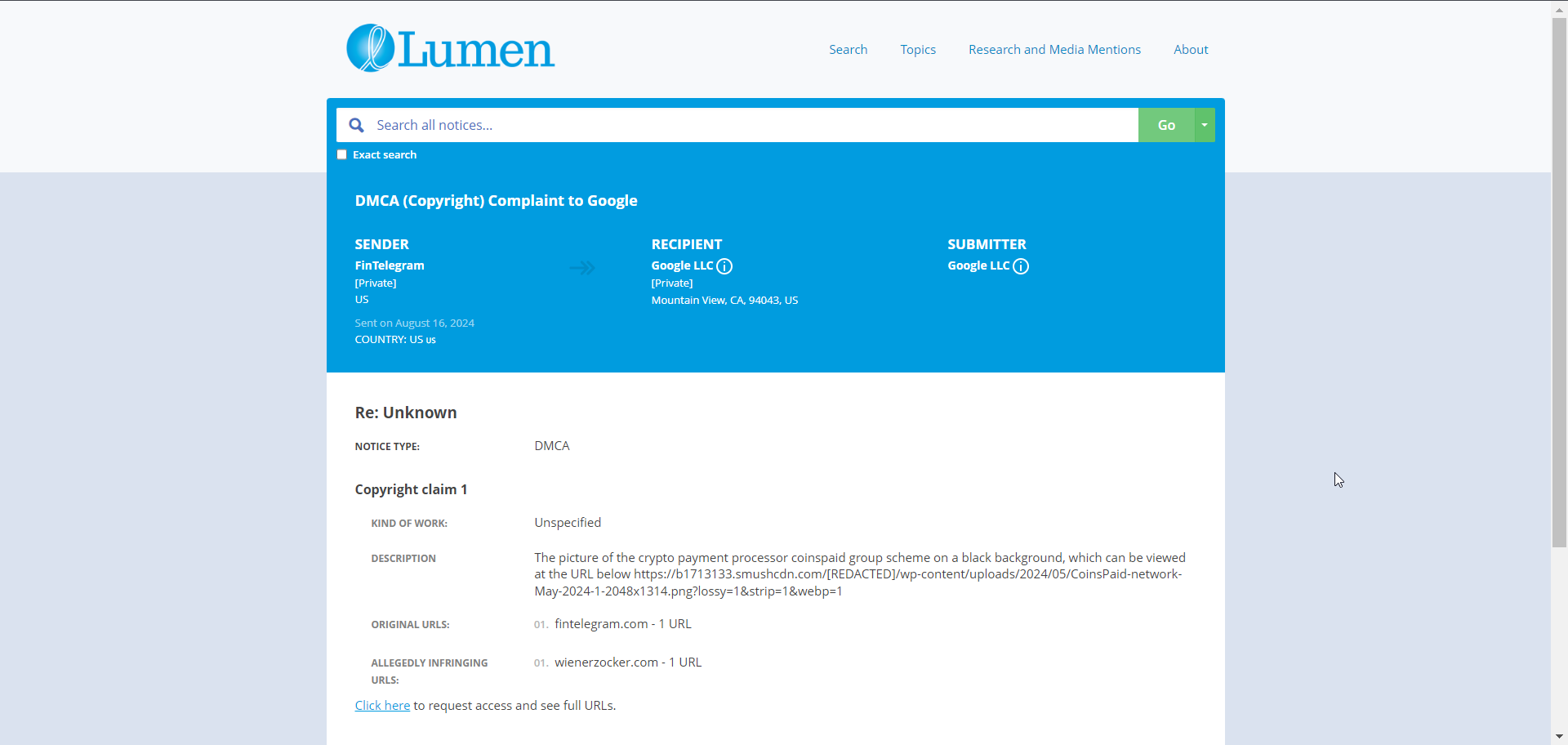
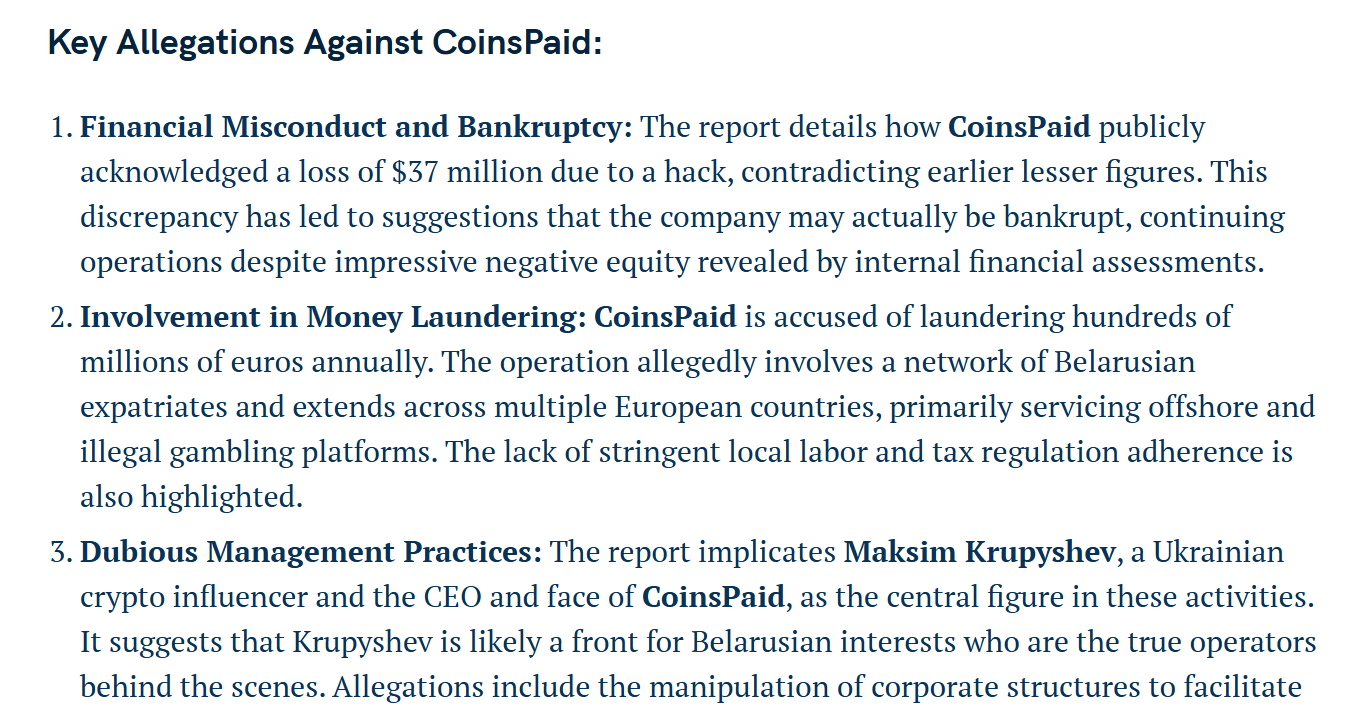

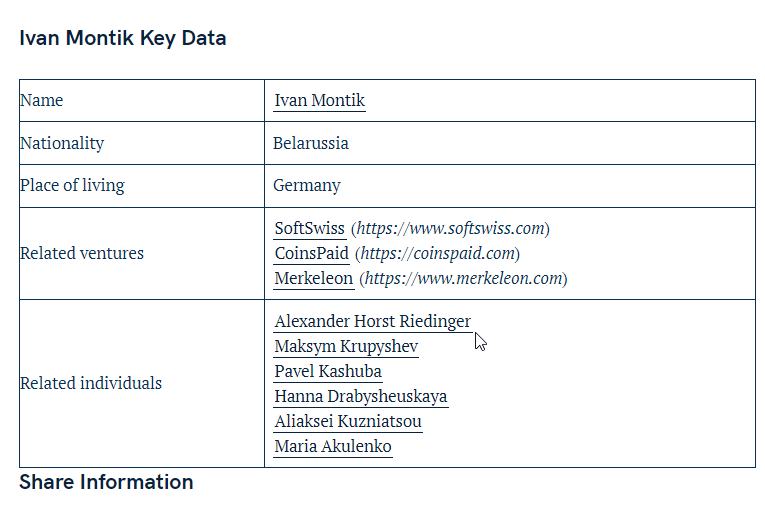
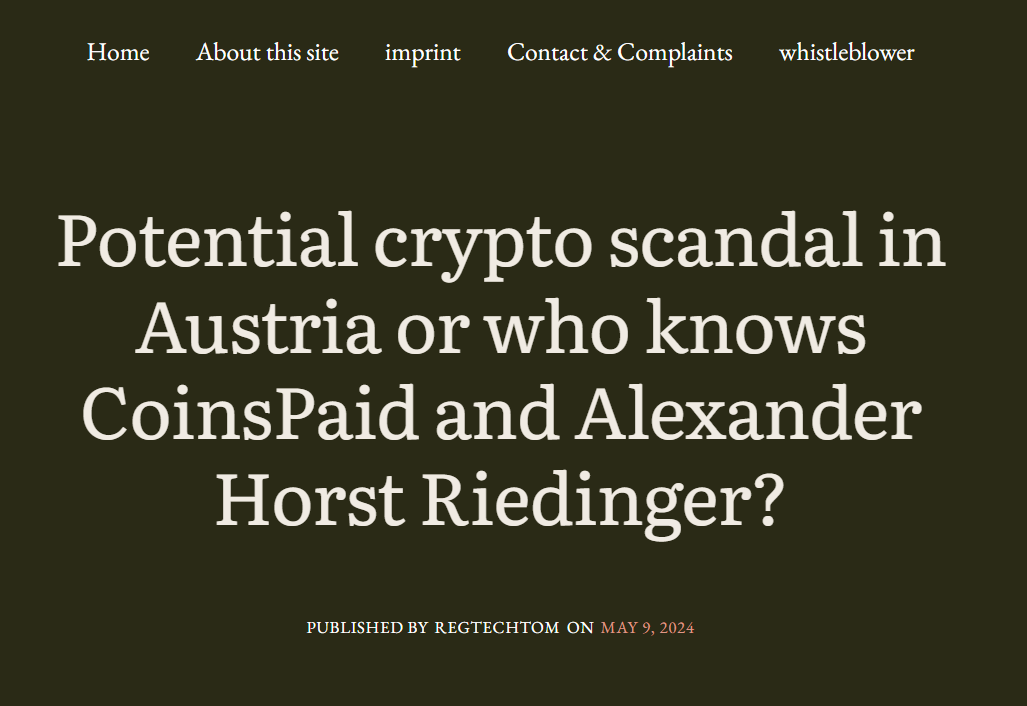
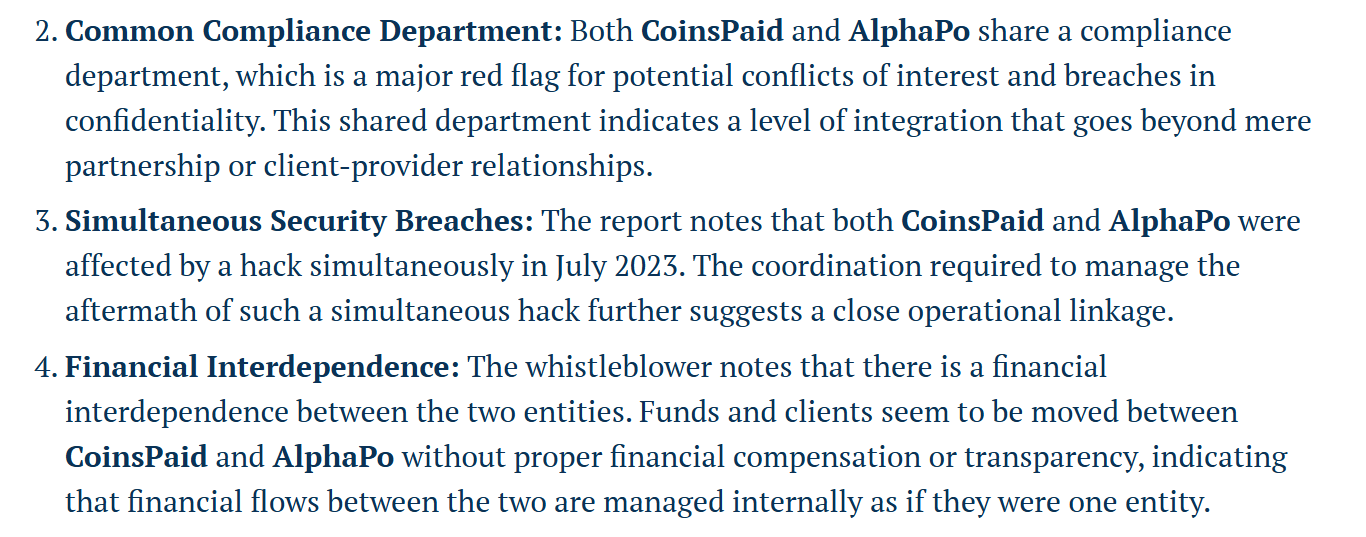
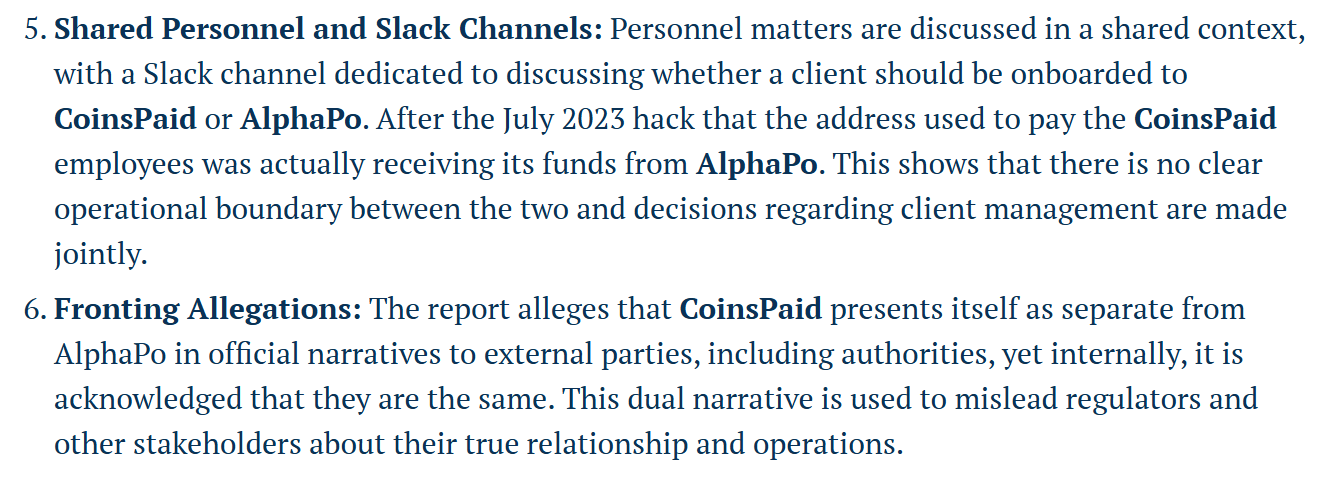
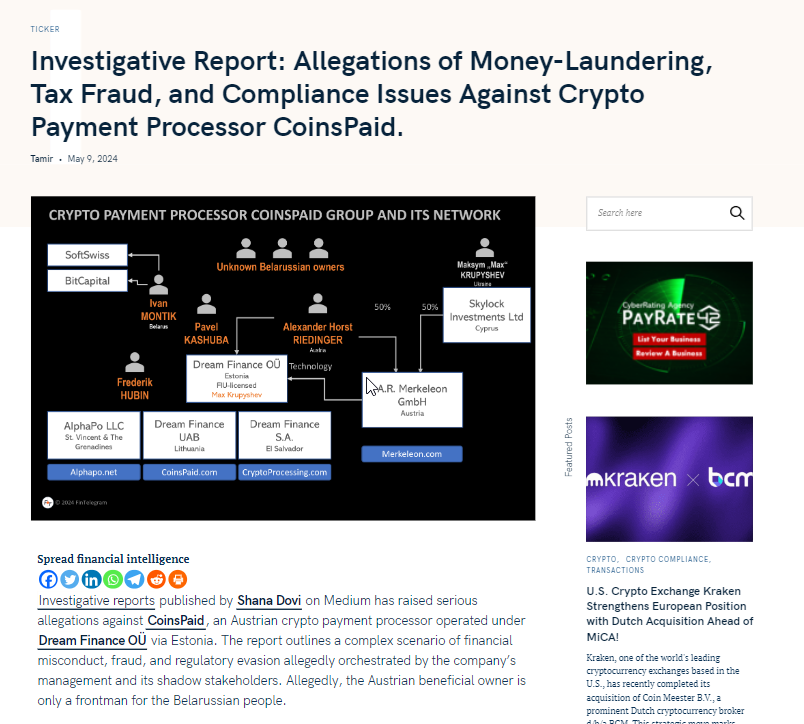
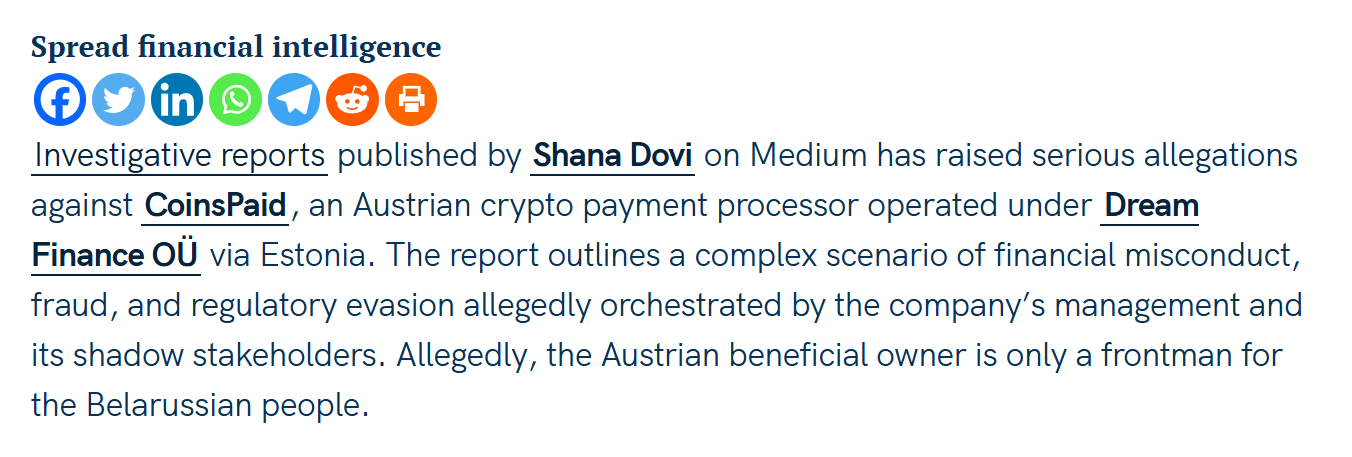
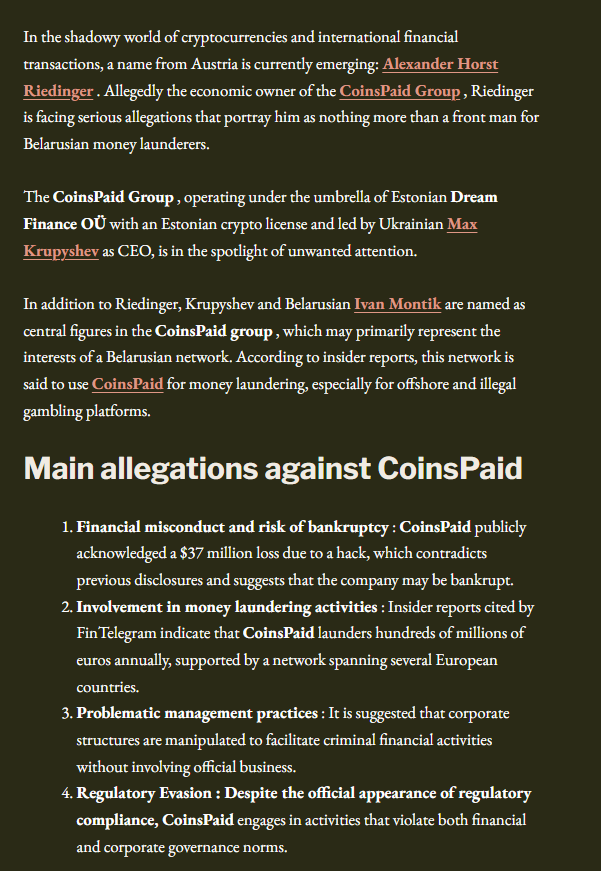
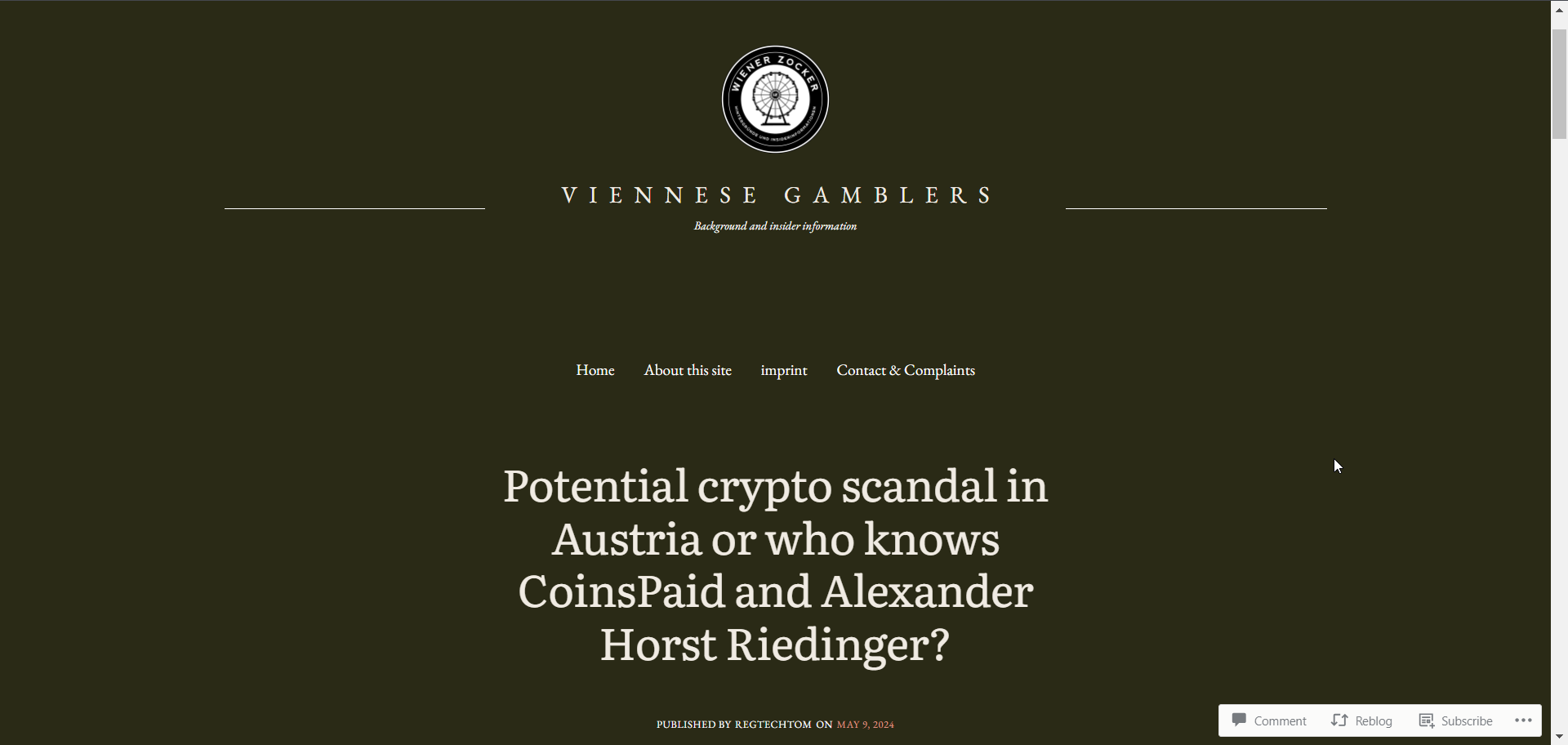


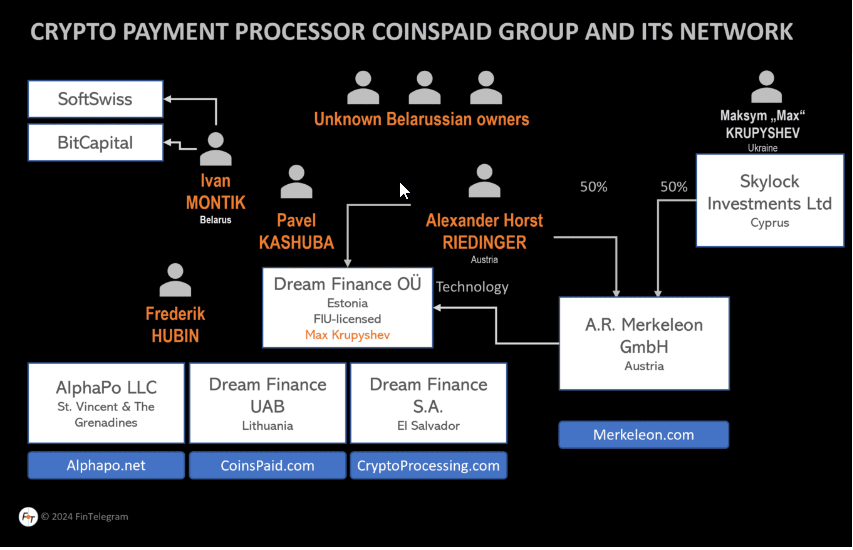


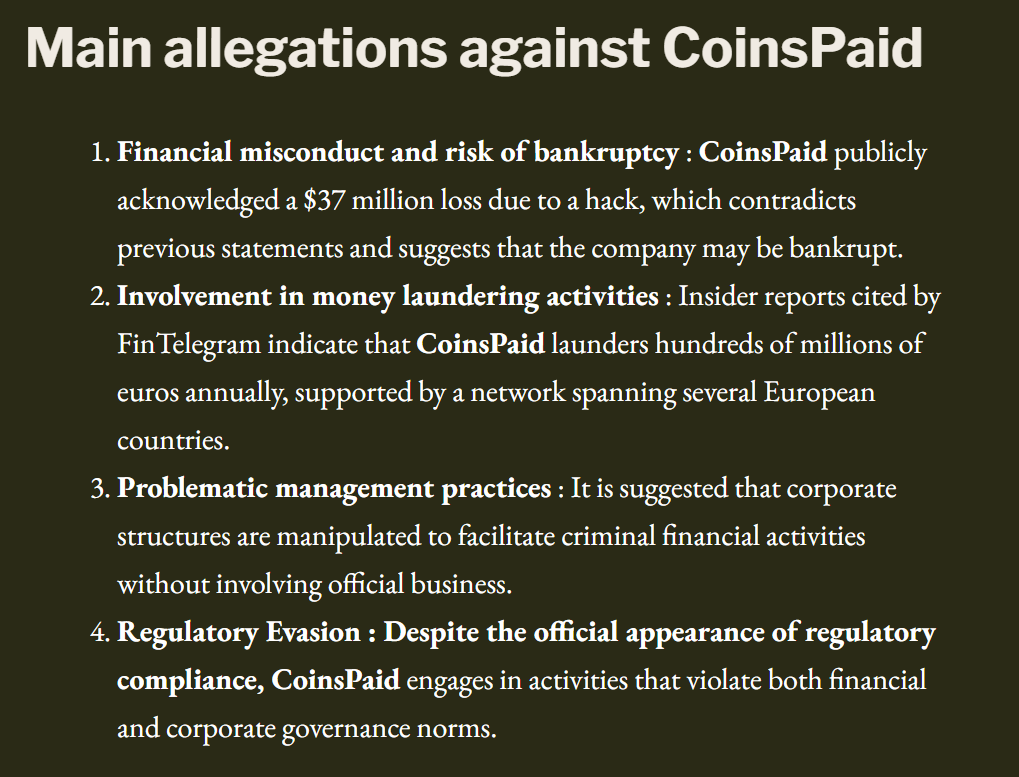
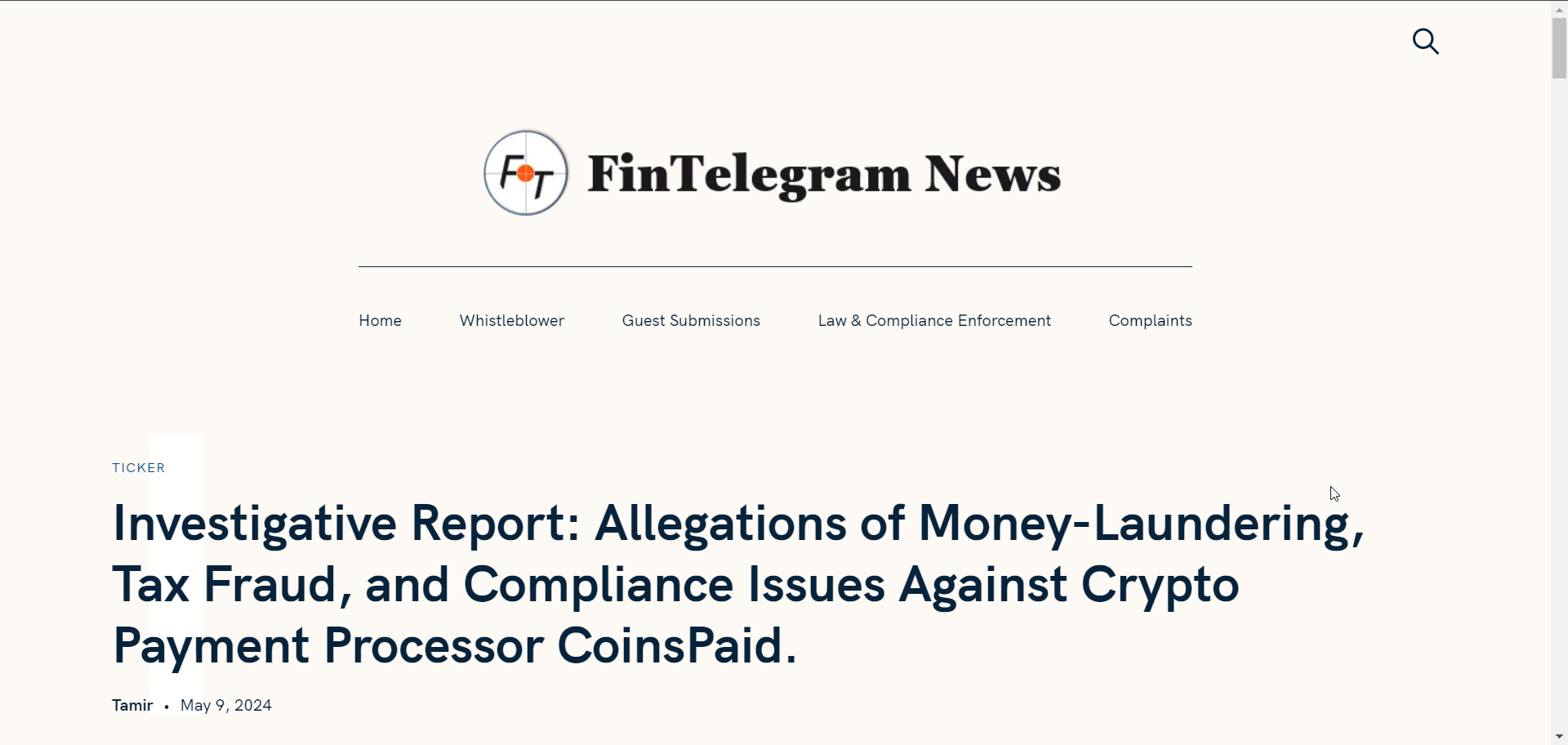
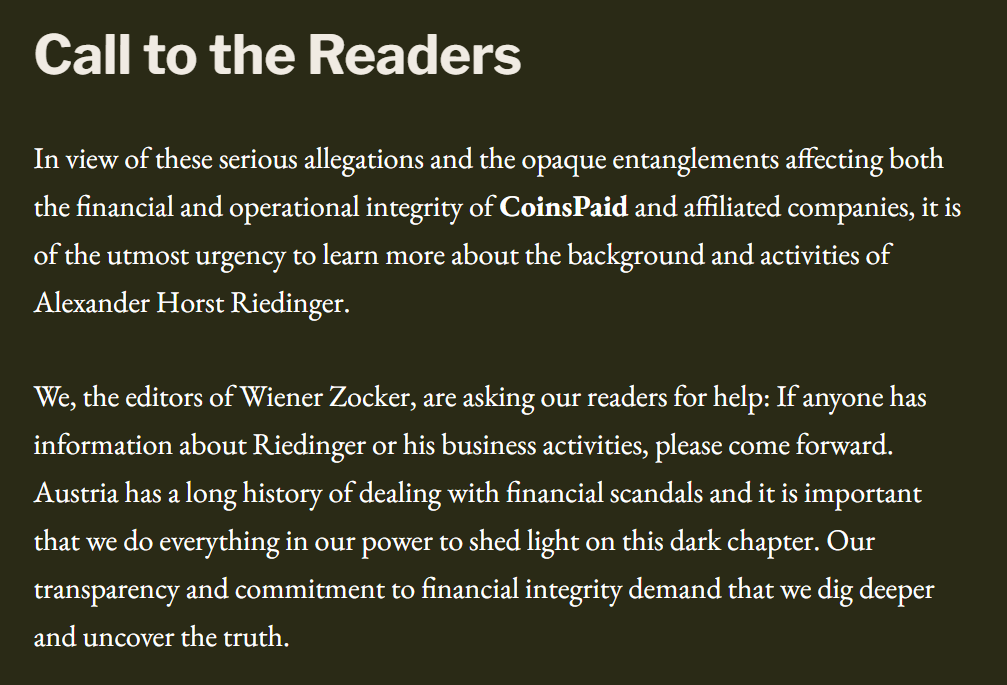


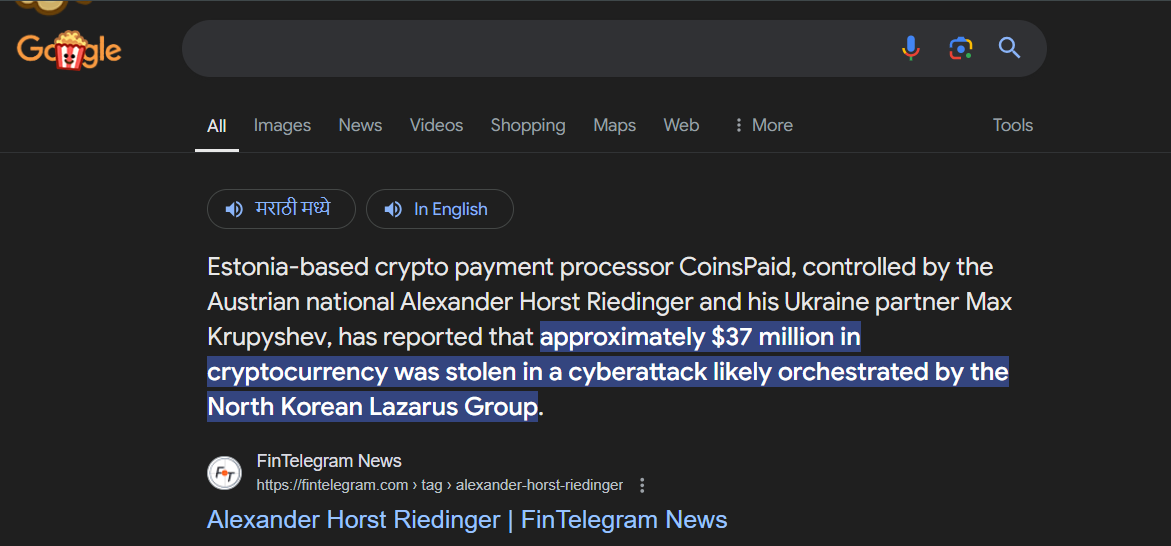
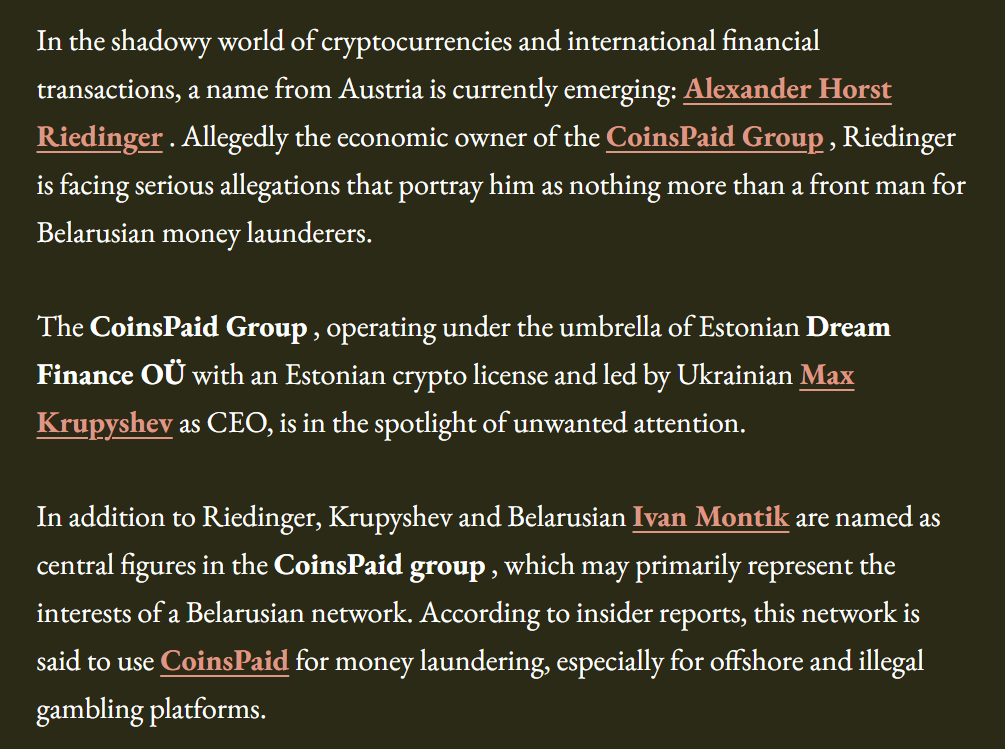

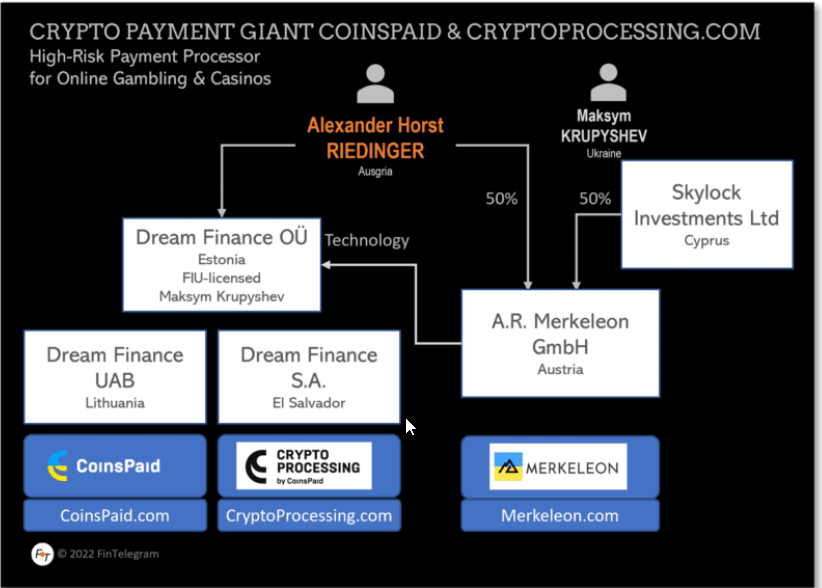
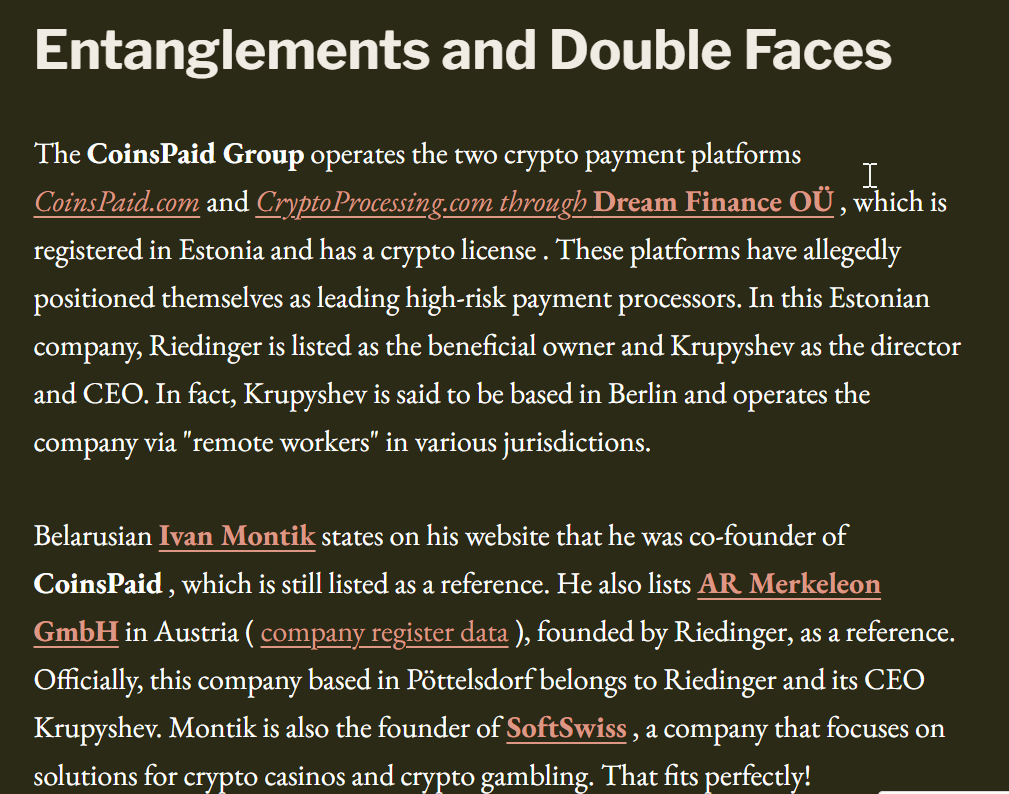
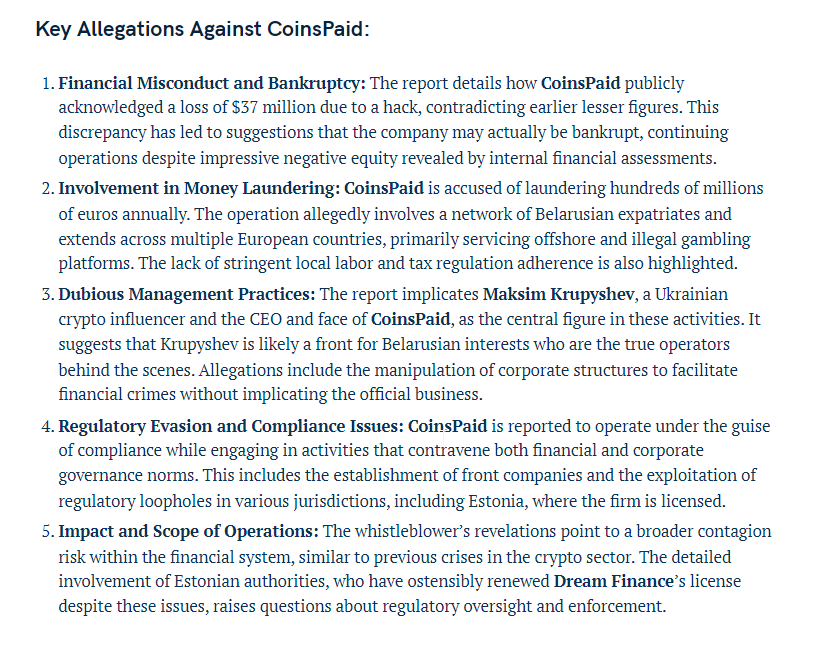

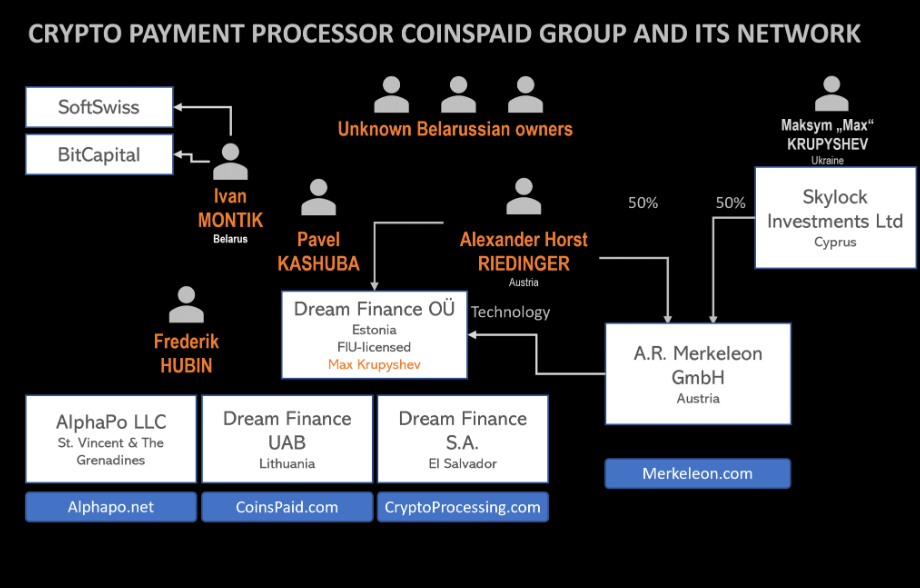
Targeted Content and Red Flags
wienerzocker.com
Potenzieller Krypto-Skandal in Österreich oder wer kennt CoinsPaid und Alexander Horst Riedinger?
- Adverse News

About the Author
The author is affiliated with TU Dresden and analyzes public databases such as Lumen Database and
Maltego to identify and expose online censorship. In his personal capacity, he and his
team have been actively investigating and reporting on organized crime related
to fraudulent copyright takedown schemes.
Additionally, his team provides
advisory services to major law firms and is frequently consulted on matters
pertaining to intellectual property law.
Escalate This Case


Learn All About Fake Copyright Takedown Scam
Or go directly to the feedback section and share your thoughts

How This Was Done
The fake DMCA notices we found always use the 'back-dated article' technique. With this technique, the wrongful notice sender (or copier) creates a copy of a 'true original' article and back-dates it, creating a 'fake original' article (a copy of the true original) that, at first glance, appears to have been published before the true original

What Happens Next?
Based on the feedback, information, and requests received from all relevant parties, our team will formally notify the affected party of the alleged infringement. Following a thorough review, we will submit a counter-notice to reinstate any link that has been removed by Google, in accordance with applicable legal provisions. Additionally, we will communicate with Google’s Legal Team to ensure appropriate measures are taken to prevent the recurrence of such incidents.


You are Never Alone in Your Fight.
Generate public support against the ones who wronged you!




Recent Investigations
Fraser Lawrence Allport
Investigation Ongoing
Egor Alshevski
Investigation Ongoing
Yehor Valerevich Alshevski
Investigation Ongoing
User Reviews
Average Ratings
2.1
Based on 10 ratings
by: Thembeka Dlamini
The scale of these fraudulent actions highlights the need for better oversight in the crypto world.
by: Samuel Kimani
A person with such allegations shouldn’t be in charge of any financial ventures. 😞
by: Amanda Becker
I trusted Alexander Horst Riedinger with $27,800 after hearing about CoinsPaid’s potential but the lies ran deep and now all I have is loss regret and emotional collapse
by: Sean Miller
I was promised stability and passive income but after wiring $25,400 to a Riedinger backed token it all disappeared in a so called system upgrade I feel sick
by: Rachel Garcia
I invested $26,000 into a project endorsed by Alexander Horst Riedinger and now the funds are gone the wallet address vanished and I’m left with nothing but anger and heartbreak😥
by: Zoe Nelson
SCAM !!!!!This company takes your money, gives you fake reports of success, and then vanishes when you ask for a withdrawal. It’s all a fraud.
by: Lucas Hall
CoinsPaid's questionable business practices and ties to Belarusian criminals make it look like a massive laundering scheme. Stay away
by: Charlotte Young
CoinsPaid has built a facade of legitimacy while operating as a vehicle for financial crime. The involvement of Alexander Horst Riedinger and his connections to Belarusian networks involved in money laundering cannot be overlooked. The massive financial loss and the...
by: William Walker
Scam alert! Alexander Horst Riedinger and his connections are clearly hiding something. How many more people will fall victim to this fraudulent operation
by: Ryan Moore
This is nothing more than a money-grabbing scheme. I’ve lost everything after following their 'expert advice'. Stay away, seriously
Website Reviews
Stop fraud before it happens with unbeatable speed, scale, depth, and breadth.
Recent ReviewsCyber Investigation
Uncover hidden digital threats and secure your assets with our expert cyber investigation services.
Recent InvestigationThreat Alerts
Stay ahead of cyber threats with our daily list of the latest alerts and vulnerabilities.
Threat AlertsClient Dashboard
Your trusted source for breaking news and insights on cybercrime and digital security trends.
Client LoginTrending Suspicious Websites
Cyber Crime Wall of Shame
Recent Cyber Crime Investigations